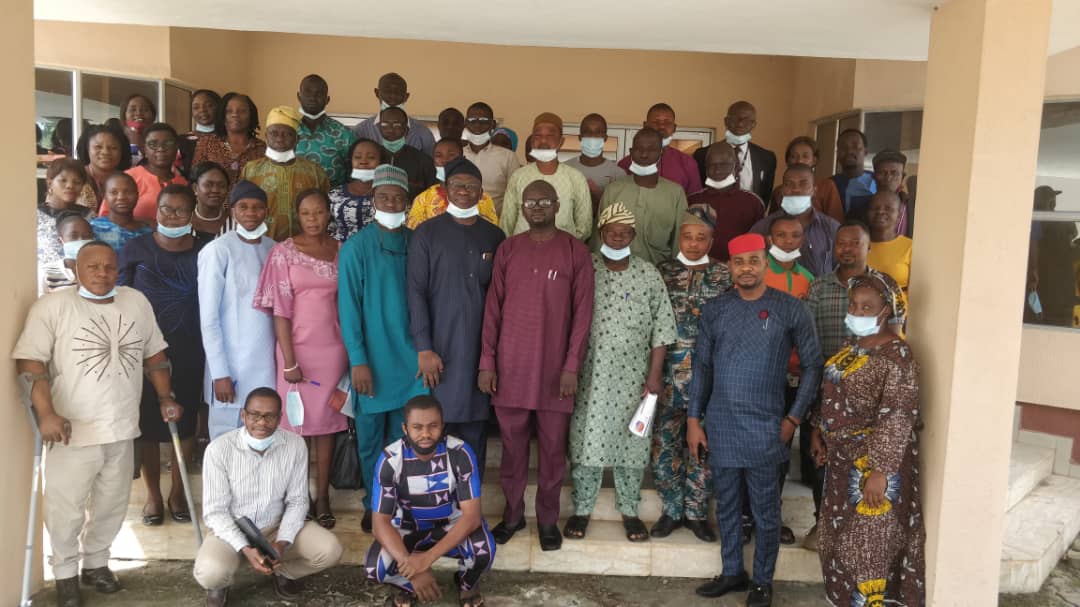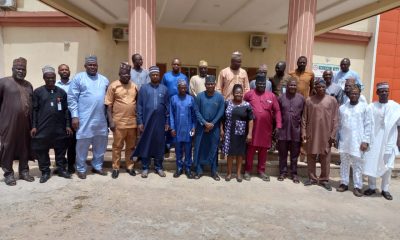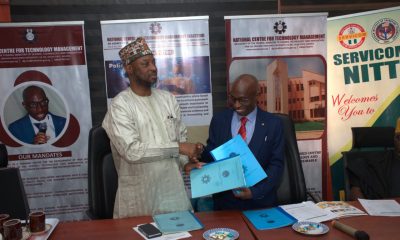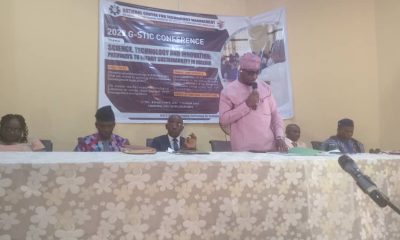News
Lack Of Modern Technology, Internet, Obstacles To Innovation In The Informal Sector- NACETEM

The National Centre for Technology Management (NACETEM), an Agency of the Federal Ministry of Science and Technology, has found out that innovation is prevalent in the informal sector in Nigeria.
The Agency in a new pilot study also revealed that lack of access to modern technology and internet connectivity are the greatest obstacles to innovation in the sector.
It stated that the significance and the immense contribution of the sector to the Nigerian economy stimulated the interest of the Agency to beam its searchlight on the significance of innovation in the sector.
This is because the informal sector accounts for around 7 out of every 10 active businesses in Nigeria and employ 80 percent of all persons working in the private sector. According to statistics from the International Monetary Fund, the sector contributes about 65 percent to Nigeria’s GDP in 2017.
The Agency at a workshop organised at its headquarters located on the campus of Obafemi Awolowo University, Ile-Ife on Thursday, November 12, 2020, also highlighted the factors that necessitated the rising importance of the sector as high barriers to enter the formal sector, limited capacity of the formal sector to absorb surplus labour, high rate of unemployment, among others.
These have prompted extensive competition in the informal sector which has created the necessity for each enterprise to improve or change the way they do business.
The Director-General/Chief Executive Officer, Engineer Professor Okechukwu Ukwuoma, represented by the Director, Human Resources Management, Akin Olawale, submitted that the understanding of the significant role played by innovation in economic growth led the Agency to commence the survey of measuring innovation in the informal sector of the Nigerian economy.
According to him, “innovation occurs when an enterprise makes changes in what it does or how it does it’. Hence, when businesses innovate, they become more profitable thereby creating jobs and increasing the productivity of the business and country at large.
He also announced that the Agency will before the end of the year will commence the national survey on innovation in the informal sector.
According to him, the survey, which will be conducted from time to time, will assist government in the development of innovation indicators which will be used to assess the performance of the sector and formulate policies that can stimulate innovation in the sector, thereby enhancing the productivity, job and wealth creation at the grassroot.
In a chat with David Adeyeye, the Head of Planning, Programming and Linkages who is also the Head of the Team that conducted the survey, said that “the informal sector is so called because the business enterprises are not regulated or registered by the government and typically operate on a small scale”.
He further explained that “the Nigerian informal sector has become robust in recent decades because many educated and experienced entrepreneurs operate therein”.
He further told reporters that NACETEM has been carrying out a survey of innovation in the formal sector since 2008, but this is the first time it is being done in the informal sector.
Interestingly, the initiative is indeed novel as “Nigeria is now the second African country (after South Africa) that has started to systematically track innovation in its informal sector”, Adeyeye submitted.
At the dissemination workshop, the Agency explained the approach adopted in carrying out the survey “We adopted a new questionnaire that was developed by the Centre for Science, Technology and Innovation Indicators (CeSTII) in South Africa.
The questionnaire was specifically tailored towards the informal sector because the instruments used to measure innovation in the formal sector are inappropriate for the informal.
According to the Agency, a total of one thousand five hundred (1200) enterprises was selected from each of three cities across three geo-political zones of the country: Abuja (North Central), Ile-Ife (South West), and Enugu (South East). The enterprises were spread across three major sub-sectors: Agriculture, Manufacturing, and Services.
The questionnaire was translated into Hausa, Yoruba and Igbo, and deployed it via a web-based platform. Trained enumerators visited and interviewed the respondent enterprises, and entered responses directly into the web-based platform using a smartphone or tablet. The survey was complemented with interviews from key actors in the informal sector.
-

 News4 days ago
News4 days agoUpdated: Oyo Police Parade Arrested Yoruba Nation Agitators
-

 News3 days ago
News3 days agoJust In: Adeleke Appoints Former Osun Commissioner For Finance, Bolorunduro Chairman Of Living Trust Mortgage Bank
-

 News4 days ago
News4 days ago‘21 Chibok Girls Return With 34 Kids; 48 Parents Die Of Trauma’
-

 News1 day ago
News1 day agoBreaking: JAMB Directs CBT Centres To Arrest Parents Found Near Facilities During UTME Exercise











